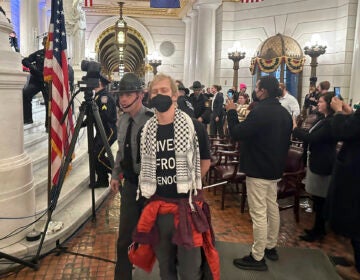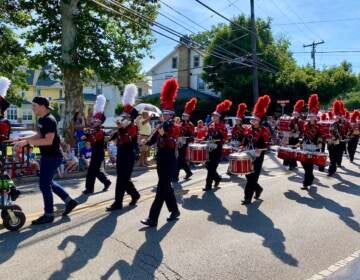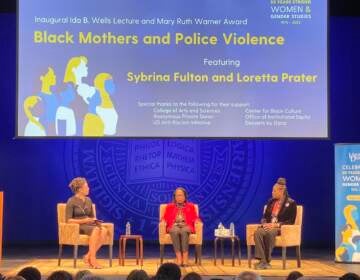Protest brings greater meaning to Fourth of July around Philadelphia
Another weekend of protests in and around Philadelphia put the Fourth of July in a different light for many who never saw the holiday as representing them.

Protesters marched through Center City Philadelphia Tuesday chanting “hands up, don’t shoot.” (Kimberly Paynter/WHYY)
The Fourth of July holiday never really resonated for Deej McCoy.
Sure, it was a day off, which was nice. Throughout their childhood, McCoy’s family would host a big barbecue to celebrate, and that was always fun. But as a Black person, the Overbrook resident says they never actually felt included in the holiday.
“This holiday wasn’t meant for me,” McCoy said. “Yes, we got our independence from England, but they still had slaves. Slavery was still very active on July 4th, 1776, so like, it wasn’t Independence Day for us.”
That’s a common thread for many Philadelphians, who don’t much feel like celebrating a country where racism has persisted for centuries, and coronavirus cases continue to mount. This year, instead of the usual celebratory social gathering, many are taking to the streets to protest.
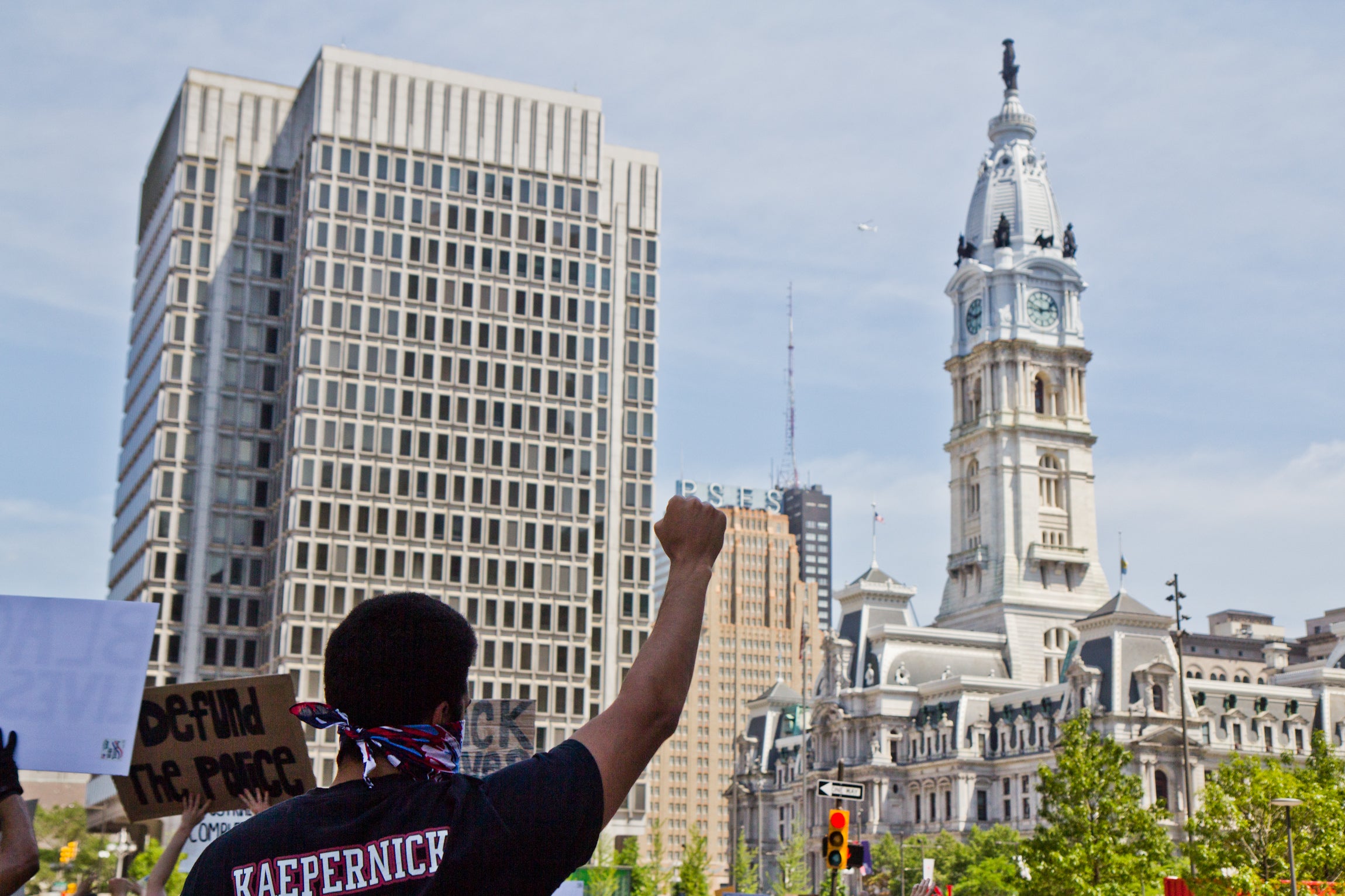
There’s nothing new about this phenomenon. For centuries, Philadelphians have used Independence Day as an opportunity to raise their voices against injustice — from Irish Catholic calls for equality in 1844 to the anti-NSA snooping protests of 2013.
But this year, the energy is on another level. At least five protests are scheduled for the Fourth of July in the city where American independence was born.
“Historically, as an African American, it’s been a bittersweet experience to celebrate a freedom you never fully felt accepted into,” said Omo Aiye, a South Jersey resident helping organize the Fists for the Fallen protest. “It’s an amalgamation of many years of oppression, and the current temperature of society day after day as people have lost their lives.”
Fighting for Black trans lives and Mumia’s freedom
McCoy is helping organize the Black Trans Assembly for Abolition — a protest starting at Front and Chestnut at 2 p.m. that will then march to the Liberty Bell. The rally is meant to support Black trans people, who are victims of violence so often that the city of Philadelphia has called it an “epidemic.”
It’s no coincidence that they’ve decided to gather on the Fourth of July.
“We wanted to choose a day that is like a cornerstone of white supremacy,” McCoy said. “It’ll be difficult for them to ignore us, because we’re being loud, walking through the streets being Black and queer and trans while they’re trying to celebrate this holiday that we don’t care about.”

To longtime MOVE activist Pam Africa, the Fourth is significant in a way that has nothing to do with American independence. July 3, 2020 is the 38th anniversary of the first-degree murder conviction of Mumia Abu-Jamal.
Abu-Jamal was found guilty of murdering a Philadelphia police officer in July 1982 — a conviction that activists have fought to overturn for decades on the grounds of prosecutorial misconduct.
Folks protest Abu-Jamal’s conviction year-round — but Africa said the anniversary of the conviction is an especially important time to take action.
“They all want to go home and party,” Africa said. “Not without us crashing the party. There’s no way in the world we’ll allow anything to go down in this city and not protest.”
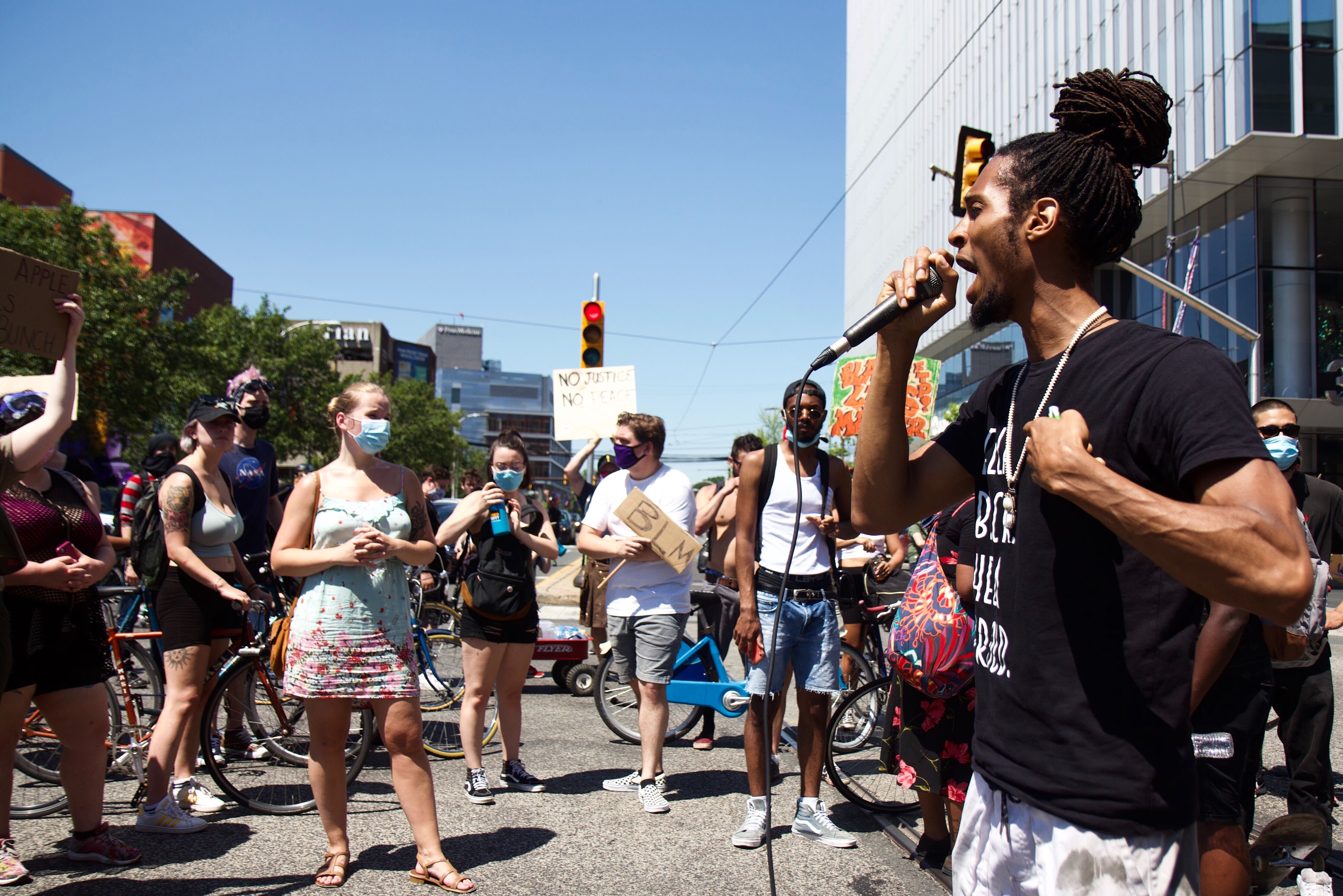
Honoring their ancestors and ousting President Trump
Organized for Abu-Jamal, the Protest Police Terror rally will converge with at least one another protest at Philly’s Municipal Services Building at noon.
Red Fists Rising is an activist group that’s new to Philly — they started up last month and right away got to organizing their first demonstration. To them, the Fourth of July is just the anniversary of centuries of racial oppression.
Starting at 30th Street Station, the Fists for the Fallen protest will include an African ceremony to honor Black ancestors. Activists will paint their fists red and raise them in the air for nine minutes. It’ll represent all the blood that’s been shed in the United States because of racism — and specifically the police killing of George Floyd in Minneapolis.
After that, they’ll march to the MSB to join forces with the protest in support of Abu-Jamal.
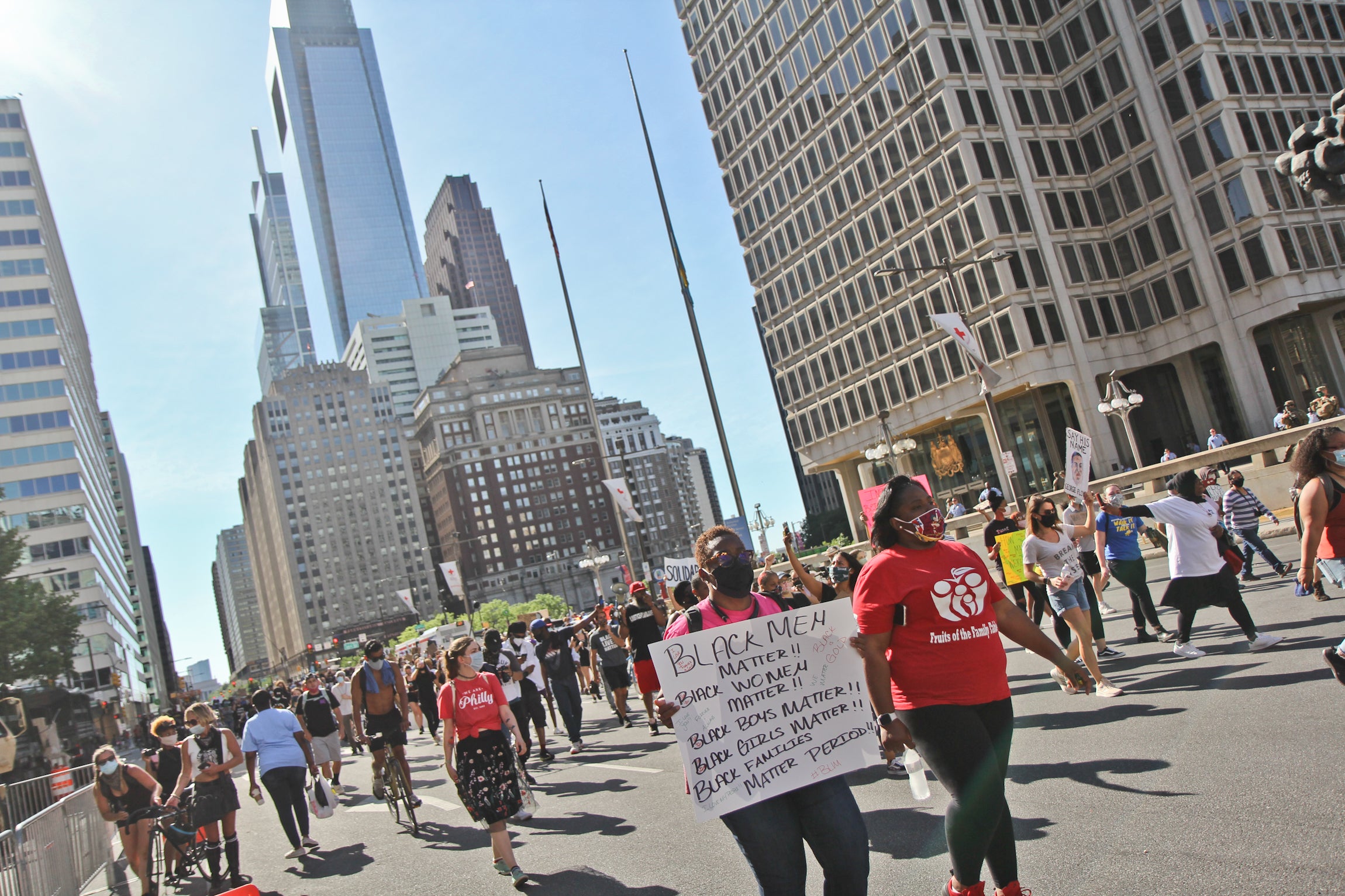
“On the Fourth of July, we need to take a look back at all the ancestors we’ve lost along the way,” said Ash’raka Juel, an organizer with Red Fists Rising. “Every family member who’s died in that time, and specifically our heroes who died due to racial oppression, enslavement, kidnapping. What we intend to do is honor them.”
Meanwhile, other protesters see Independence Day as an opportunity to fight back against the current political administration. Refuse Fascism Philly has organized an evening protest at Dilworth Park against President Donald Trump and VP Mike Pence.
Independence Day, to organizer Sam Goldman, is another reminder of the United States’ problematic past. She intends to spend the day recognizing that.
“I want to unite with people who, like myself, believe that America was never great, and can never be great,” Goldman said. “I dream of a world without an America. I believe in being a citizen of the planet.”
“Protesting is patriotic,” added McCoy. “It’s crucial not just to the United States, but to getting oppressive systems overturned or evaluated in a way so that people can try to do something about it. Every significant change started with a protest.”
WHYY is your source for fact-based, in-depth journalism and information. As a nonprofit organization, we rely on financial support from readers like you. Please give today.



